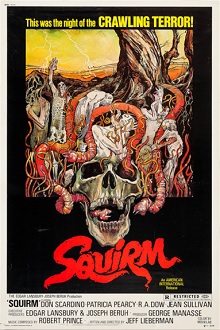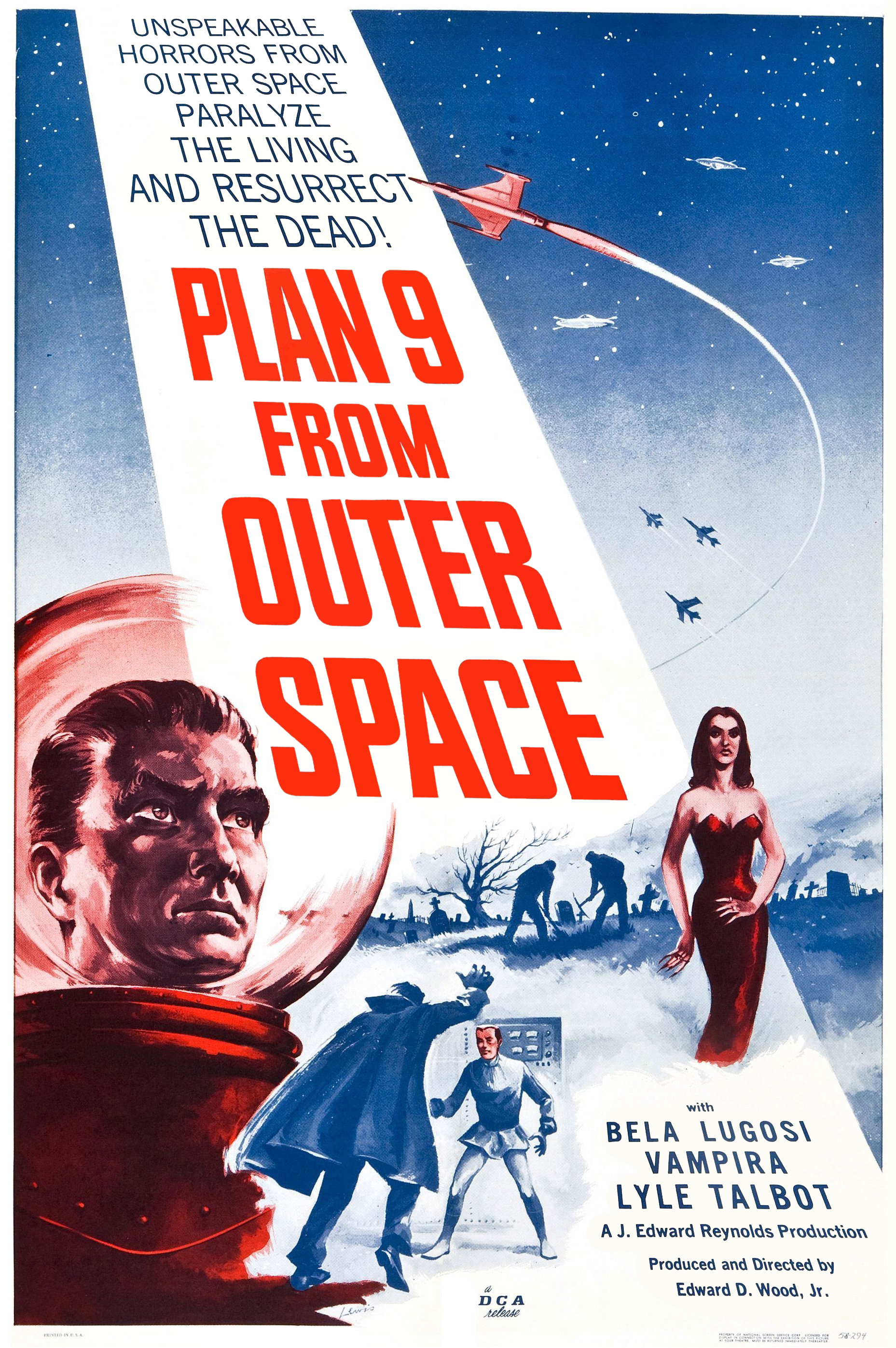Plot Summary
The Good
The Bad
Judgment
Closing
Introduction
Well, it's October proper now, and so there are a few movies that I've scared up for the month that hosts Halloween that I've just got to check out. First up in the four part Shock-tober film fest is the 1958 fright-fest, The The Screaming Skull.
Back to Top
Plot Summary
Eric Whitlock (John Hudson), now happily married to his second wife Jenni (Peggy Webber), returns to his estate after some years away.
Everything within it is just as it was left, and the gardener has been keeping the grounds as if Eric - or his late first wife Marian who tragically died near the property's pond - never left. But as strange things begin to distract Jenni and she starts to see and hear things that Eric assures her are not there it seems that the estate is not yet finished with sorrow.
Bumps in the night become real reasons for terror, but is Jenni truly seeing and hearing things as they are? Or is Eric right and there's nothing at all the matter in their freshly minted marriage?
When it comes to matters of creepy gardeners, strange noises, and bizarre appearances of skulls everywhere, nothing can be certain - even the cry of a peacock could be the sound of The Screaming Skull!
Back to Top
The Good
For better or worse, this movie has one thing going for it: A 1950s car with seagull doors!
Neat props aside, The Screaming Skull definitely has its moments of mild fright. But what the movie does best is create atmosphere. The colonial estate on which the film is set already lends itself well to this, but the tension is also ratcheted up through Jenny's constant edginess.
Much like another ill-thought of movie from the middle of the 20th century - a little picture called Manos: The Hands of Fate - the best character in the movie are those who are on the sides.
The Reverend Edward Snow (Russ Conway) and his wife (Tony Johnson), are interesting, if static figures, but just as in Manos, the greatest character in the movie is Mickey (Alex Nicol), the estate's gardener (and the film's director). Just like Torgo, Mickey's motivations and personality are the most developed and worked through, and so likewise, he is always a curious figure to watch.
Back to Top
The Bad
However, the big problem with The Screaming Skull is that it fails to establish real relationships between its characters. The one between Mickey and the memory of Marian is the best in the film, but even it is terribly thin and shallow. We're basically given a Catelyn Tully/Petyr Baelish situation (if I may be so bold as to jump genres), but nothing as complex develops from it.
Worst of all, though, the one relationship that the movie really needs to make us care about, that between Eric and Jenni, gets no development whatsoever. Eric mentions once (once!) that she's moneyed, and she gives no real indication as to why she's interested in the man.
Despite the insistence of the script, this is not a good show of a madly in love married couple. That most of their scenes come across as reads rather than actual conversation between any truly in love couple does nothing to help their case.
What's more, the characters of Jenny and Eric, again, those whom we should be made to care about the most, are pitiably underdeveloped. All we know about Eric is that he's been away from the estate for 3 years, he's re-married, and he must have some kind of job (right?).
To be fair, we do learn quite a bit about Jenny's past, but we don't get enough early on to really relate to her. Eric's under-development is disappointing, but with Jenny's downright terrible.
But why are relatable characters so important to horror movies?
Well, horror movies require characters that their viewers can relate to, since when those characters are in danger, or in tense situations, or scared, then we can feel those same emotions.
Jenny, as the new wife who is being introduced into the way of life that Eric is planning for, is the perfect audience proxy character. She, just as those watching, is being brought into a brand new scenario. But, because we're not able to really make a connection with her due to the mysteries of her background and attraction to Eric.
As a result, what is supposed to be a largely sympathetic genre becomes instead a plodding tense fest that comes across as comical rather than scary not because of the era's effects, but because without a character to see ourselves as or to empathize with, we the audience become objective observers, coldly removed from a movie whose genre requires emotional investment on at least some level.
Back to Top
Judgment
The Screaming Skull and Manos: The Hands of Fate are definitely of the same ilk.
Both movies are low-budget, poorly executed horror movies that are just plain bad.
Yet, the difference between them is that Manos is so bad that it's good - it can show people the absolute worst way to make a movie in all of its aspects.
The Screaming Skull on the other hand is badly done, but lacks the main thing that redeems Manos: Interesting characters that have dynamic relationships and that are fascinating in their own right.
Because The Screaming Skull is missing such characters the house in which much of it happens is a perfect self-reflexive metaphor. The estate house is frightening in its own right (it is a horror movie after all), but absolutely empty - and therefore entirely uninteresting. What's more, aside from two throwaway lines, we're never given any clear reason for Eric's actions - unless he is, in fact, bound for the loony bin.
So, Freya, leave this one below as you fly over the field of fallen films. Oh, and don't get too close, you might fall into its bubble of boredom and tumble to the ground.
Back to Top
Closing
Coming up tomorrow - Annotated Links #19. So be sure to watch for more wacky news and information!
Back to Top

















